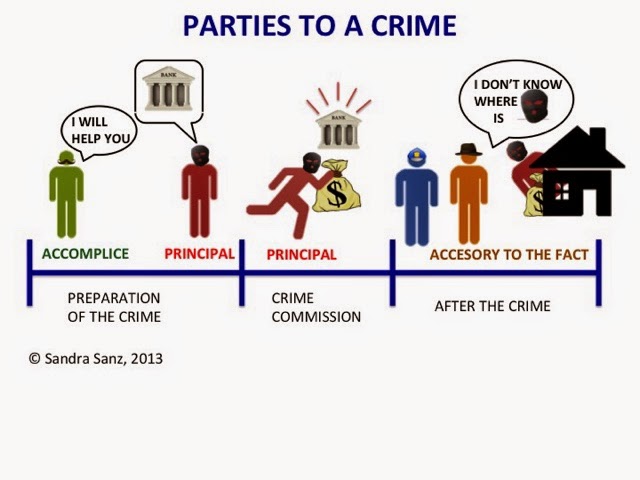Anything One Should Know About Protection Orders
 |
| image taken from www.pinterest.com |
What is a protection order?
It is an order issued under Republic Act No. 9262 for the purpose of preventing further acts of violence against a woman or her child specified in this Act and granting other necessary relief. The relief granted under a protection order serve the purpose of safeguarding the victim from further harm, minimizing any disruption in the victim's daily life, and facilitating the opportunity and ability of the victim to independently regain control over her life.
What are the protection orders that may be issued?
1. Barangay Protection Order (BPO)
2. Temporary Protection Order (TPO)
3. Permanent Protection Order (PPO)
Who is the offended party of this Act?
The following are the offended party:
1. A woman who is:
a. the wife of the offender;
b. former wife of the offender;
c. with whom the offender has or had a sexual or dating relationship;
d. with whom the offender has a common child.
2. A child of the offender, whether legitimate or illegitimate, within or without the family abode.
| image taken from |
Who may file Petition for Protection Orders?
1. the offended party;
2. parents or guardians of the offended party;
3. ascendants, descendants or collateral relatives within the fourth civil degree of consanguinity or affinity;
4. officers or social workers of the DSWD or social workers of local government units (LGUs);
5. police officers, preferably those in charge of women and children's desks;
6. Punong Barangay or Barangay Kagawad;
7. lawyer, counselor, therapist or healthcare provider of the petitioner;
8. at least 2 concerned responsible citizens of the city or municipality where the violence against women and their children occurred and who has personal knowledge of the offense committed.
What are the reliefs granted under the protection order?
The protection orders that may be issued under the R.A. No. 9262 shall include any, some or all of the following reliefs:
1. Prohibition of the respondent from threatening to commit or committing, personally or through another, any of the acts mentioned in section 5 of this Act;
2. Prohibition of the respondent from harassing, annoying, telephoning, contacting or other communicating with the petitioner, directly or indirectly;
3. Removal and exclusion of the respondent from the residence of the petitioner, regardless of ownership of the residence, either temporarily for the purpose of protecting the petitioner, or permanently where no property rights are violated, and if respondent must remove personal effects from the residence, the court shall direct a law enforcement agent to accompany the respondent has gathered his things and escort respondent from the residence;
4. Directing the respondent to stay away from the petitioner and designated family or household member at a distance specified by the court, and to stay away from the residence, school, place of employment, or any specified place frequented by the petitioner and any designated family or household member;
5. Directing lawful possession and use by petitioner of an automobile and other essential personal effects. regardless of ownership, and directing the appropriate law enforcement officer to accompany the petitioner to the residence of the parties to ensure that the petitioner is safely restored to the possession of the automobile and other essential personal effects, or to supervise the petitioner's or respondent's removal of personal belongings;
6. Granting a temporary or permanent custody of a child/children to the petitioner;
7. Directing the respondent to provide to the woman and/or her child if entitled to legal support. Notwithstanding other laws to the contrary, the court shall order an appropriate percentage of the income or salary of the respondent to be withheld regularly by the respondent's employer for the same to be automatically remitted directly to the woman. Failure to remit and/or withhold or any delay in the remittance of support to the woman and/or her child without justifiable cause shall render the respondent or his employer liable for indirect contempt of court;
8. Prohibition of the respondent from any use or possession of any firearm or deadly weapon and order him to surrender the same to the court for appropriate disposition by the court, including revocation of license and disqualification to apply for any license to use or possess a firearm. If the offender is a law enforcement agent, the court shall order the offender to surrender his firearms and shall direct the appropriate authority to investigate on the offender ad take appropriate action on matter;
9. Restitution for actual damages caused by the violence inflicted, including, but not limited to, property damage, medical expenses, childcare expenses and loss of income;
10.. Directing the DSWD or any appropriate agency to provide petitioner may need; and
11. Provision of such other forms of relief as the court deems necessary to protect and provide for the safety of the petitioner and any designated family or household member, provided petitioner and any designated family or household member consents to such relief.
Where to apply for a protection order?
Applications for BPOs shall be filed in the same barangay where both of the parties are actually residing or if the parties are living in different barangays within the same city or municipality, BPOs shall be filed in the barangay where the respondent is actually residing at the option of the complainant.
An application for a TPO or PPO may be filed in the regional trial court, metropolitan trial court, municipal trial court, municipal circuit trial court with territorial jurisdiction over the place of residence of the petitioner: Provided, however, That if a family court exists in the place of residence of the petitioner, the application shall be filed with that court.
Where the protection orders shall be enforced?
All TPOs and PPOs issued shall be enforceable anywhere in the Philippines and a violation thereof shall be punishable with a fine raning from P5,000.00 to P50,000.00 and/or imprisonment of 6 months.
What is the effectivity of the protection orders?
All BPOs shall be effective for a period of 15 days while TPOs shall be for a period of 30 days while PPOs are permanent.
Source: Republic Act No. 9262 or "Anti-Violence Against Women and Their Children Act of 2004"


Comments
Post a Comment